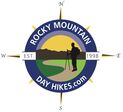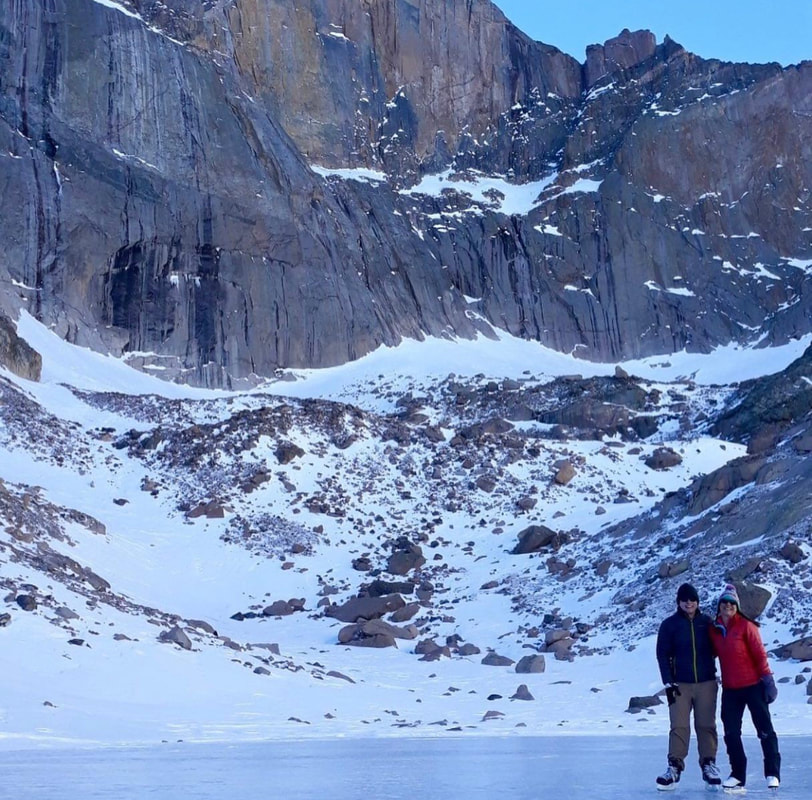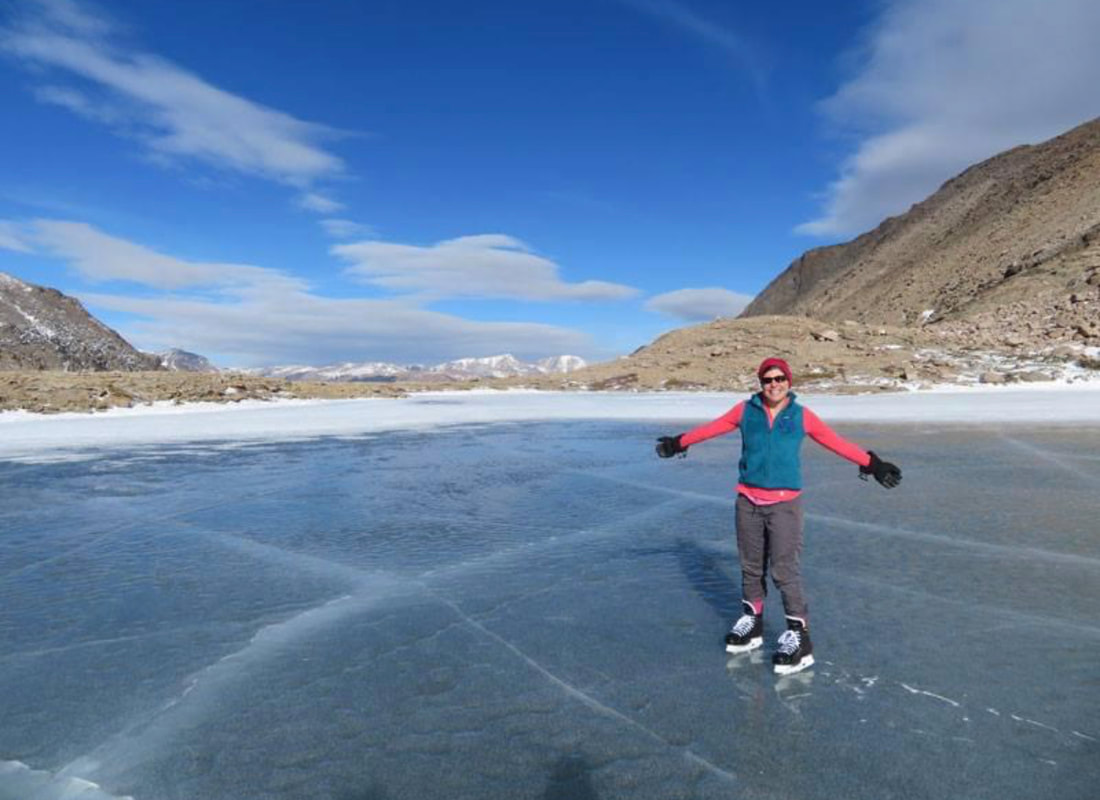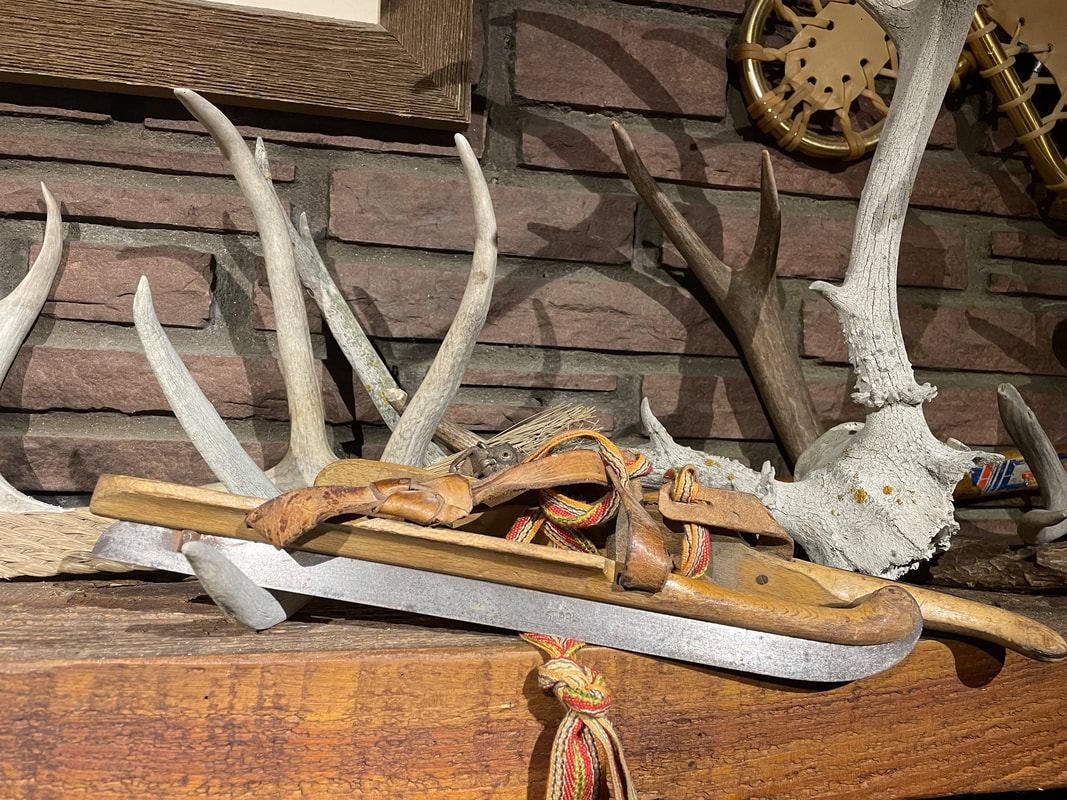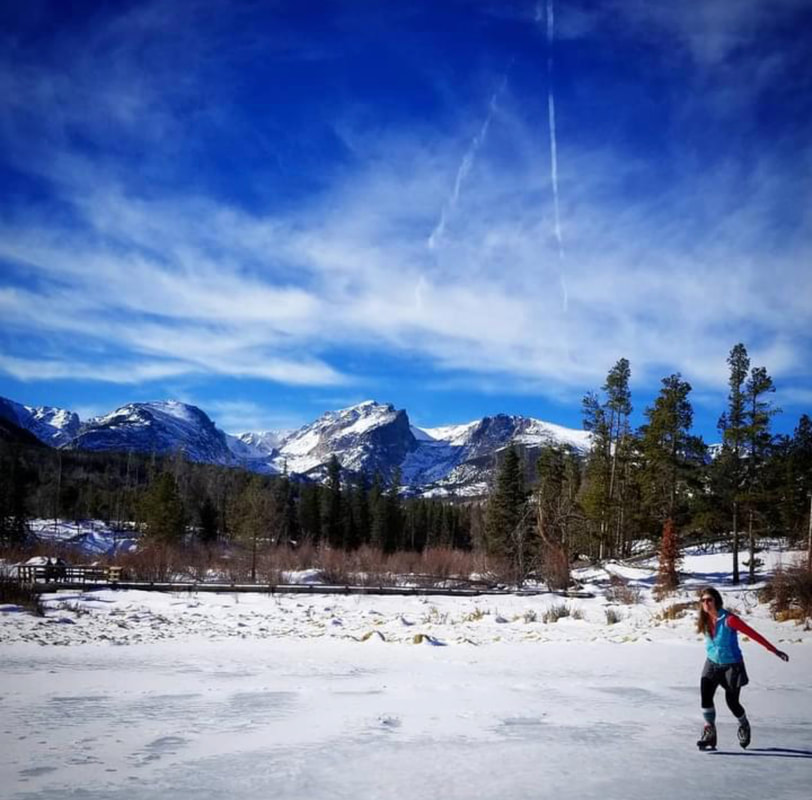|
by Rebecca Detterline In the winter of 2017, while making plans for a hike to Blue Lake, a friend asked if I owned ice skates. Growing up in Minnesota I think every kid had ice skates, but somehow mine never made the journey to Colorado. Almost everyone in Minnesota knew how to ice skate. Whether they just strapped on a pair of rentals for the annual elementary school field trip, played hockey at the outdoor rink found in every single small town, or, like me, walked down to the nearest lake dotted with fish houses and skated clear across to the other side, it was pretty rare to make it through one's formative years without at least giving ice skating a try. Back to Blue Lake. Since I didn't have skates, my dear friend had secured a pair from someone with feet probably two inches longer than mine, so I laced them up as tight as I could and headed out onto the lake. I consider myself to be relatively athletic, but with the skates that were a couple sizes too big and Blue Lake being covered in miniature ice moguls, I looked like Bambi attempting to learn to walk on a frozen pond! How could I have unlearned such a simple skill in twenty short years? Luckily, I made it off Blue Lake unscathed and and headed down to Black Lake, which was in incredible shape for ice skating, where we skated for another hour and I felt that I was able to redeem myself as a Minnesota girl. Compared to other winter activities in the Park, ice skating the price of equipment is relatively low. Ice climbing, mountaineering and backcountry skiing require loads of specialized gear, not to mention an experienced partner, mentor or guide. I've also noticed that the dollar-to-fun ratio seems a bit questionable when it comes to snowshoes. Ice skates, on the other hand, are available at any number of sports equipment consignment shops along the front range for $50 or less. In order for conditions on the alpine lakes to be suitable for enjoyable ice skating, it seems like conditions for all other winter activities have to be terrible. Lack of snow and high winds are the recipe for clear ice up high. Ice skating is a blast, but fires are terrifying, so I will take the snow every single time, even if it means I have to attempt to clear off a 10x10 foot area with an avalanche shovel. With the exception of Lake Haiyaha, which seems to miraculously repel snow during the winter months, hiking to an alpine lake with grandiose plans to skate on smooth, clear, snow- free ice can lead to disappointment. Luckily, my friends are running around RMNP all winter, sharing photos on social media, so that I know in advance whether my lake of choice will be a glassy, ice skater's paradise or a field of dense impenetrable snow. Without an updated conditions report, it's probably best to not to make ice skating one's primary mission. Rather, plan an enjoyable winter hike, pack the skates, and treat ice skating as a bonus activity. Skate guards are essential to avoid damage to one's backpack, favorite puffy jacket, or—heaven forbid—water bladder. This risk, coupled with the bulkiness of ice skates and my affinity for a small backpack have had me seriously considering trying out the antique strap-on skates that sit atop my mantle as decoration. Although I've historically been able to find a relatively smooth spot on most alpine lakes, learning to ice skate on them is not ideal. I vividly remember a day on Sprague Lake last winter when it seemed like someone must have snuck a Zamboni unto the ice; it was that smooth! I wonder if I will ever experience conditions like that again. I'm definitely not holding my breath. For children and beginners, YMCA of the Rockies and Trout Haven offer ice skate rentals and onsite skating rinks. For those looking to givethe alpine lakes a whirl, the Mountain Shop offers daily rentals that can be taken into the Park. Although the wind is usually blowing and my ice skates are freezing cold when I pull them out of my backpack, once I start skating, I never want to stop! Ice skating in Rocky Mountain is a truly magical experience. I have been lucky enough to ice skate on Chasm Lake on a sunny day with Longs Peak looming above, so I guess that I have been lucky enough. 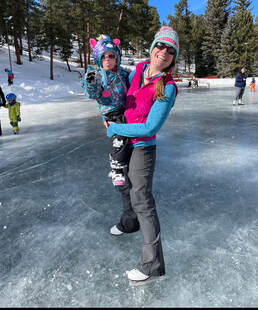 Adeline Williams and Rebecca Detterline skating at the YMCA of the Rocky's Dorsey Pond. Adeline Williams and Rebecca Detterline skating at the YMCA of the Rocky's Dorsey Pond. Rebecca Detterline is a lover all things RMNP. She is a wildflower aficionado whose favorite hiking destinations are alpine lakes and waterfalls. Her name can be found in remote summit registers in Wild Basin and beyond. Originally from Minnesota, she has lived in Allenspark since 2011.
2 Comments
Amanda
11/29/2024 11:57:25 am
Thanks for all the great info! Wondering what would be in season for ice skating in late November? Hoping to get out there this weekend!
Reply
Dave
11/30/2024 10:07:28 am
Hi Amanda! All alpine lakes are frozen over now. We have had considerable snow in the high country but the last few days have also been very windy, so much of the snow has been blown off. Perhaps the easiest lakes to get to for skating would be Mills Lake or The Loch, both out of the Glacier Gorge trailhead. Enjoy!
Reply
Leave a Reply. |
Categories
All
|
© Copyright 2025 Barefoot Publications, All Rights Reserved
